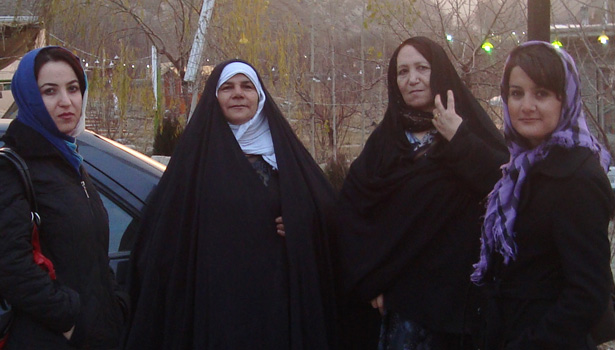Remembering: Life During the Kurdish 1991 Mass Exodus
Aug 8, 2010

For five months through the harsh winter of 1991, 5-year-old Dilpak Adam hid with others in a school near the Iraq-Iran border, with no blanket to sleep under and only bread to eat.
Adam was one of hundreds of thousands of Kurds who fled in the aftermath of the Kurdish uprising against Iraq's Ba'athist regime. In response to the uprising, the Iraqi army attacked three cities in northern Iraq: Erbil, Sulaimania and Duhok. Tanks and helicopters converged on the areas as airplanes bombed the cities and nearby districts.
"I was afraid of dying because I didn't think of coming back home again, I was afraid to lose my relatives and my friends," said Adam, who now at 25, studies sociology at a university in Iraqi Kurdistan.
The violence produced outrage in some quarters of America, but then-President George H.W. Bush remained silent. This led Peter Galbraith, a Senate staffer in the region at the time, to criticize the president in his book, "The End of Iraq," where he wrote "televised images of Kurdish men burying the small wrapped corpses of their children were contrasted with the president on vacation fishing in Florida."
The U.S. Senate forced the administration to address the problem and voted to create a temporary safe haven for refugees on the Iraq-Turkey border.
While most people fled across the border into Iran, Adam stayed in Iraq, but she was not immune to the violence.
"I never forget that I could not take my doll and my rabbit with me when we left our home," Adam said.
In the small town of Tawela, Adam lived in harsh conditions with her family in a school house with many others.
"I was five years old at that time," Adam said. "The most interesting thing I remember from the time was when I saw the Peshmerga (Kurdish rebels) cooking. I told them that I like bread."
The fighters gave her a piece of bread. It was rotten and didn't taste right, but it was still delicious, she said. Most people there could not get fresh food to eat. Adam said she usually ate biscuits instead of meals.
In the school, Adam and her relatives slept under pieces of nylon in the rain, because they had no blankets.
Hundreds died as a result of Sadaam's attacks in the north. Adam is one of those who survived the hunger, harsh winter and the bullets of Saddam's army.
Above Photo: Dilpak Adam (far right) with her family in a recent photo. (Courtesy Dilpak Adam)

Add your comment